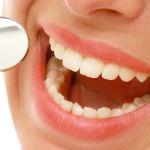
- 1-Recognizing-the-Signs-of-Oral-Herpes-Infection
- 2-Understanding-Oral-Herpes-Symptoms
- 3-Effective-Management-Strategies-for-Oral-Herpes
- 4-Personal-Stories-Highlight-Oral-Herpes-Care
- 5-Where-to-Find-Support-and-Products
1. Recognizing the Signs of Oral Herpes Infection
Oral herpes infection, caused primarily by the herpes simplex virus type 1 (HSV-1), is a common condition that manifests through a variety of symptoms. Early identification of these signs is essential for timely management and reducing discomfort.
Typical initial signs include tingling or burning sensations around the lips or mouth area, often followed by the appearance of small, painful blisters or sores. These sores can crust over and typically heal within two to three weeks.
1.1 Other Associated Symptoms
Alongside visible sores, individuals may experience fever, swollen lymph nodes, sore throat, and general fatigue, especially during the first outbreak. Knowing these symptoms can help differentiate oral herpes from other oral conditions.
2. Understanding Oral Herpes Symptoms
Oral herpes symptoms vary between individuals and episodes. Some people may have frequent recurrences triggered by stress, illness, or sun exposure, while others may experience only a single episode.
The infection is contagious, especially when sores are present, emphasizing the importance of understanding its transmission routes and precautions.
2.1 The Impact on Daily Life
Oral herpes can affect a person's confidence and social interactions due to visible sores and discomfort. Addressing symptoms promptly and effectively is crucial for maintaining quality of life.
3. Effective Management Strategies for Oral Herpes
Management of oral herpes involves a combination of medical treatments and lifestyle adjustments. Antiviral medications prescribed by healthcare providers help reduce the severity and duration of outbreaks.
Topical creams and pain relievers can alleviate discomfort, while maintaining good oral hygiene supports healing. Avoiding triggers like excessive sun exposure, stress, and certain foods can also help prevent flare-ups.
3.1 Practical Tips for Care
Applying cold compresses to the affected area, staying hydrated, and refraining from touching the sores minimizes spread and promotes recovery. Consistent care and monitoring are key to effective management.
4. Personal Stories Highlight Oral Herpes Care
Many individuals share their experiences managing oral herpes, emphasizing the importance of early treatment and emotional support. One patient’s story details how prompt antiviral therapy reduced the frequency of outbreaks and improved confidence.
Such narratives offer insight and hope to those coping with oral herpes, illustrating that with proper care, the condition can be managed successfully.
5. Where to Find Support and Products
For comprehensive care and trusted products, Dentistry Toothtruth provides a range of resources designed to support oral herpes management. From effective topical treatments to educational materials, their offerings help individuals take control of their condition with confidence.
Exploring Dentistry Toothtruth’s options can be a valuable step toward improved oral health and quality of life for those affected by oral herpes infection.







 Minnesota Orthodontics - Mendota Heights4.0 (27 review)
Minnesota Orthodontics - Mendota Heights4.0 (27 review) Crossroads Pediatric Dentistry0.0 (0 review)
Crossroads Pediatric Dentistry0.0 (0 review) Jennifer Chiang, DDS5.0 (221 review)
Jennifer Chiang, DDS5.0 (221 review) Craig Donn DDS4.0 (767 review)
Craig Donn DDS4.0 (767 review) Millennium Dental Arts5.0 (235 review)
Millennium Dental Arts5.0 (235 review) Dr. Manisha Suri, DDS5.0 (4 review)
Dr. Manisha Suri, DDS5.0 (4 review) The Importance of Oral Health Education During Pregnancy for a Healthy Pregnancy
The Importance of Oral Health Education During Pregnancy for a Healthy Pregnancy Best Tips for Brushing Your Teeth Properly for Healthy Gums: Essential Techniques for Oral Health
Best Tips for Brushing Your Teeth Properly for Healthy Gums: Essential Techniques for Oral Health Why Skipping Dental Checkups Can Lead to Bigger Oral Health Problems
Why Skipping Dental Checkups Can Lead to Bigger Oral Health Problems Advantages of Porcelain Dental Restorations
Advantages of Porcelain Dental Restorations How Can Diabetes Cause Tooth and Gum Problems? Preventing and Managing Oral Health Issues
How Can Diabetes Cause Tooth and Gum Problems? Preventing and Managing Oral Health Issues Healthy Habits for Promoting Good Oral Health and Hygiene: Tips for a Healthy Smile
Healthy Habits for Promoting Good Oral Health and Hygiene: Tips for a Healthy Smile